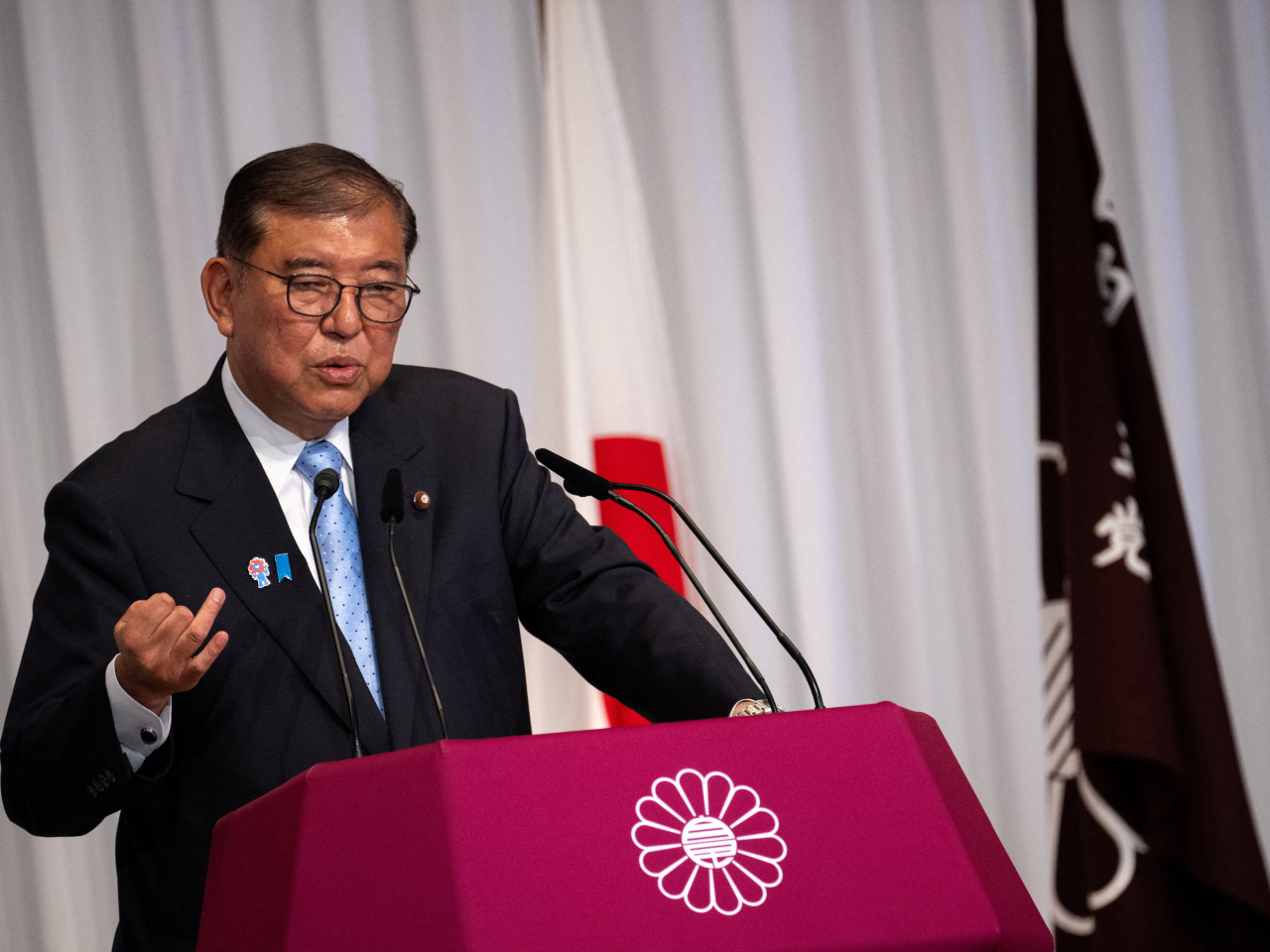Japanese Prime Minister Shigeru Ishiba vowed to remain in office on Monday after his ruling coalition suffered a bruising defeat in upper house elections, prompting some within his own party to deliberate his future as the opposition weighed a no-confidence motion.
The embattled premier said he would remain in office to oversee tariff talks with the United States and other pressing matters such as rising consumer prices that are straining the world's fourth largest economy.
Ishiba stressed the need to establish a common understanding among parties on the pros and cons of cutting the country's sales tax rate and urged them to join discussions on how to cushion the blow from rising inflation while being mindful of the responsibility to keep Japan's fiscal house in order.
Cutting the sales tax, currently set at 10 percent except for an 8 percent levy on food products, could increase household income temporarily but would raise questions on how to pay for Japan's ballooning social welfare and pension costs, he said.
Facing a voter backlash over rising consumer prices, investors fear his administration will now be more beholden to opposition parties advocating for tax cuts and welfare spending that the world's most indebted country can ill afford. Markets in Japan were closed for a holiday on Monday.
Adding to the economic anxiety, Ishiba's lack of progress in averting tariffs set to be imposed by its biggest trading partner, the United States, on August 1 appears to have frustrated some voters.
"Had the ruling party resolved even one of these issues, it [its approval rate] would have gone up, but we didn’t feel anything and it seems like the US would continue to push us around," Hideaki Matsuda, a 60-year-old company manager, said outside Tokyo's bustling Shinjuku station on Monday morning.
An analyst told RTHK's Hong Kong Today programme that Ishiba's Liberal Democratic Party (LDP) also struggled to capture younger voters.
"It's clear that the people are not necessarily happy with the government policies at this moment. And particularly, I think the economic policy adapted are really a key challenge at this moment," said Masaru Yarime, Associate Professor at the Division of Public Policy at the University of Science and Technology.
"But because of this, the result of the election, that the LDP and also Komeito, they don't maintain a majority either in the upper house or in the lower house. So it would make it more difficult for them to really navigate this very uncertain political landscape."
The LDP, which has ruled Japan for most of its post-war history, and coalition partner Komeito won 47 seats, short of the 50 it needed to ensure a majority in the 248-seat upper chamber in an election where half the seats were up for grabs.
The leader of the main opposition Constitutional Democratic Party, Yoshihiko Noda, said on Sunday he is considering submitting a vote of non-confidence in the Ishiba administration. Noda's party won 22 seats, finishing second.
Some senior LDP lawmakers were also quietly voicing doubts over whether Ishiba should stay, according to local media reports.
Among them was former prime minister Taro Aso, leader of a powerful faction, who said he "couldn't accept" Ishiba staying on, Japan's TV Asahi reported.
Senior party members including Aso met on Sunday evening to discuss whether Ishiba should resign, Sankei newspaper reported. The far-right Sanseito party clocked the biggest gains of the night, adding 14 seats to one elected previously. (Reuters)
_____________________________
Last updated: 2025-07-22 HKT 11:29





